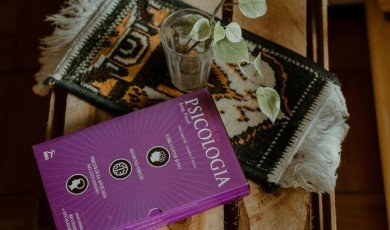
In an era where fictional universes captivate moviegoers and bestsellers list teem with imaginative tales, non-fiction continually cements its relevance as a genre that both grounds and propels us. While fiction serves as an escape, non-fiction introduces us to possibility: the possibility of understanding ourselves more deeply, recognizing the patterns of human behavior, and making meaningful changes in our lives. On our curated platform dedicated to non-fiction literature, where the focus is on psychology, personal development, and influential reads, we delve into what makes non-fiction books genuinely unforgettable amidst the constant tide of compelling fictional narratives.
The Transformative Power of Non-Fiction
1. Reality Is Often More Fascinating Than Fiction
At the heart of non-fiction’s enduring appeal is its foundation in reality. True stories, meticulously researched theories, and proven self-help strategies draw us in because they reflect, sometimes illuminate, the intricacies of real life. When readers pick up a book like Thinking, Fast and Slow by Daniel Kahneman or Atomic Habits by James Clear, they are not merely entertained; they gain new tools for interpreting and navigating their world.
Non-fiction feeds our hunger for understanding: the science behind our decisions, the hidden motivations that drive behavior, and the larger forces shaping culture. Because these insights are rooted in the world we inhabit, their impact is profound and enduring. They become reference points not just for conversation, but for action.
2. The Power of Personal Transformation
One major draw of non-fiction, especially within the personal development genre, is its potential to facilitate genuine change. Unlike fiction, which may offer catharsis or provoke reflection, books like The Power of Habit by Charles Duhigg or Daring Greatly by Brené Brown equip us with actionable strategies to enhance our lives. Readers come away empowered, their perspectives shifted through a new understanding of habits, vulnerability, or resilience. The best non-fiction is not simply informative, it’s transformative. It demands engagement and prompts readers to ask, “How can I apply this?” Whether learning about emotional intelligence (Daniel Goleman), grappling with the power of mindset (Carol S. Dweck), or embracing radical acceptance (Tara Brach), non-fiction provides a template for growth that fiction rarely parallels.
3. Empathy Through Understanding
While fiction is frequently lauded for its ability to foster empathy, non-fiction delivers this same benefit through a different route. Immersing ourselves in memoirs, psychological case studies, or cultural critiques allows us to see the world through another’s eyes, not by imagining their story, but by inhabiting their reality. Books such as Educated by Tara Westover or Man’s Search for Meaning by Viktor E. Frankl demonstrate the power of lived experience and survival, teaching empathy by revealing how people actually endure, adapt, and overcome. This exposure makes non-fiction unforgettable, as it changes not only how we see ourselves, but also how we relate to others. For readers seeking a greater understanding of human behavior or complex social issues, non-fiction remains a vital guide.
4. The Authority of Expertise
Non-fiction is an arena where expertise, evidence, and insight converge. The genre’s most influential books, whether classic tomes or contemporary chart-toppers, are often written by leading psychologists, neuroscientists, educators, and activists. Their wisdom is not speculative but hard-won, distilled from years of research or personal experience. In a world awash with misinformation, readers crave the assurance that what they’re learning is both credible and applicable. Non-fiction satisfies this by offering up carefully curated knowledge, expert analyses, and up-to-date research. On platforms such as ours, the process of curation adds another layer of trust, ensuring that recommendations within psychology and personal development are not only current but genuinely impactful. The same principle applies in professional services, where accuracy and trust matter. For example, businesses seeking reliable cross-cultural communication often partner with a Translation Services in Manchester provider to ensure their message remains both precise and powerful.
5. Non-Fiction as a Catalyst for Action
What ultimately sets non-fiction apart from its fictional counterparts is its power to precipitate action. A gripping novel may stay with us emotionally, but a great non-fiction book can drive us to start a new habit, challenge a belief, or advocate for change in our communities. Books like Grit by Angela Duckworth or Start with Why by Simon Sinek don't simply make compelling arguments, they issue a call to action. Non-fiction, particularly that which centers on personal growth and psychology, bridges the gap between learning and living. It doesn’t just entertain, it equips.
6. Keeping Pace With a Changing World
Finally, the world is changing faster than ever, and non-fiction rises to meet the challenge. It enables readers to stay informed about breaking scientific trends, psychological discoveries, or evolving cultural narratives. Whether through in-depth explorations like Sapiens by Yuval Noah Harari or incisive essays by Malcolm Gladwell, non-fiction both catalogs our world and helps us to navigate it. As society evolves, so too does the body of work within non-fiction. New books address emerging challenges, mental health in the digital age, productivity in a remote world, or the neuroscience of connection. By reading non-fiction, we don’t just keep up with change, we become part of the conversation shaping our collective future.
Why Non-Fiction Endures and Thrives
In a literary landscape brimming with fantastical adventures and imagined realities, non-fiction holds a singular power: the ability to inspire, inform, and incite change. Whether delving into psychology, chronicling personal triumphs, or distilling complex research into accessible wisdom, non-fiction books are unforgettable because they address our innermost questions about who we are, how we grow, and what it means to live purposefully. Here at our curated non-fiction platform, we believe that the best books do more than occupy space on a shelf, they become part of your mindset, influencing choices and rippling through everyday life. Non-fiction’s resonance lies in its authenticity, its utility, and its commitment to truth. As you seek to understand human behavior, hone your habits, or broaden your perspective, remember that the most unforgettable books may not be those that whisk you away to other worlds, but those that ground you more firmly in your own.
Explore our latest recommendations, analysis, and insights into the ever-evolving world of non-fiction. Your next transformative read might just be a click away.








